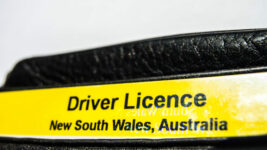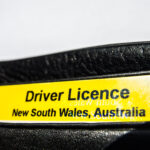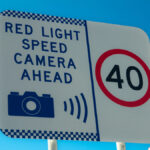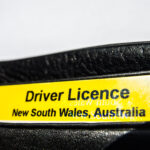The Laws Relating to Driver Licence Suspensions, Disqualifications and Appeals

Traffic law is a complex area that can be a minefield for both those who are considering representing themselves in court and lawyers who are unfamiliar with, or inexperienced in, the field.
Here’s a thumbnail sketch of some of the rules relating to driver licence suspensions, disqualifications, court elections, rights of appeal and ways in which a disqualified driver can apply to get their licence back before his or her disqualification period has expired.
Who has the power to suspend a driver licence?
Suspension of a driver licence is a decision that can be made by either a NSW Police officer or Transport for New South Wales (formerly known as Road Transport Authority and also Roads & Maritime Services).
Police power to suspend driver licences and the appeal process
A NSW Police officer can issue a suspension notice in certain circumstances under section 224 of the Road Transport Act 2013 (NSW).
This type of suspension is an ‘appealable decision’ and can thus be appealed against to the Local Court: ss 266(1) and 267.
An appeal against this type of suspension must be filed within 28 days of receiving the suspension notice: s 267(2).
The appeal will be heard at least 28 days after filing of the appeal: s 267(6). This type of suspension will remain in place until the appeal is heard and determined.
The applicant must satisfy the court that there are exceptional circumstances justifying the suspension: s 268(5)(a). Further, the appeal does not permit review of the guilt or innocence of the applicant for the charge/offence that gave rise to the suspension: s 268(4)(a).
Upon hearing the appeal, the court can either:
- allow the appeal and remove the remainder of the suspension; or
- dismiss the appeal and the suspension will continue to be in place: s 268(2),
but the court cannot reduce the period of the suspension: ss 268(3) and 225(4).
Demerit point suspensions by TfNSW
Under sections 33(1) and 40(1), Transport for New South Wales can issue a notice of suspension on the basis that the person who is subject to the suspension incurs the ‘threshold number of demerit points’ within the 3-year period ending on the day on which the person last committed a demerit point offence.
This type of suspension is not effective immediately and the suspension notice must specify a date on which the suspension takes effect.
If the person is a holder of a learner licence or provisional P1 or P2 licence, this type of suspension is an ‘appealable decision’ and can thus be appealed against to the Local Court: ss 266(1) and 267.
An appeal against this type of suspension must be filed within 28 days of receiving the suspension notice: s 267(2). If the appeal is filed, the suspension will not commence until the appeal is heard and determined by the court.
If the person is a holder of an unrestricted driver licence, this type of suspension is not an ‘appealable decision’ and thus cannot be appealed against.
Instead, the person can elect, as an alternative to undergoing the suspension, to be of good behaviour for a period of 12 months on and from the day the suspension would otherwise commence: s 36(1)(a).
If the person, during the 12 months’ good behaviour period, incurs two or more demerit points by an offence, TfNSW must issue a notice of suspension, suspending the person for twice the period of suspension that would have applied but for the election: s 36(4)(a).
This type of suspension is also not an ‘appealable decision’ and thus cannot be appealed against. However, in appropriate circumstances, the person may be able to avoid the increased suspension period by electing to have the offence dealt with by a court and avoiding conviction (and the resulting demerit points) for the offence that would otherwise breach the good behaviour requirement.
Suspensions for certain offences
Under section 59(1), TfNSW can suspend a person’s driver licence for certain speeding offences or alcohol or other drug related driving offences.
This type of suspension is an ‘appealable decision’ and can thus be appealed against to the Local Court: ss 266(1) and 267. An appeal against this type of suspension must be filed within 28 days of receiving the suspension notice: s 267(2).
If the appeal is filed, the suspension will not commence until the appeal is heard and determined by the court, unless there is a suspension already in place by NSW Police arising from the same offence.
If there is not any suspension already in place by NSW Police for the same offence, this type of suspension is not effective immediately and specifies a date on which the suspension takes effect.
The appeal does not permit review of the guilt or innocence of the person for the charge/offence: s 268(4)(a). If the person seeks to challenge their liability for the offence, the person will need to elect to have the penalty notice dealt with by a court instead.
Appealing a suspension by TfNSW
On an appeal against suspension by TfNSW, the person who is the subject of the suspension is generally expected to show:
- that the person is a fit and proper person to hold a driver licence; and
- that the person has a need for the licence.
The appeal will be heard at least 28 days after filing of the appeal: s 267(6).
Upon hearing the appeal, the court can either:
- allow the appeal and remove the remainder of the suspension;
- allow the appeal in part and reduce the period of the suspension; or
- dismiss the appeal and confirm the full period of the suspension: s 268(2).
When can a driver be disqualified?
Disqualification of a person from holding any driver licence is an order that can be made by a court after being convicted for certain offences under Part 7.4 Division 1 of the Road Transport Act.
The disqualification operates to permanently cancel all driver licences held by the person at the time of the disqualification: s 207(1). Thus, once the disqualification expires, the person will need to re-apply for their driver licence.
Mandatory interlock order
For certain driving offences involving presence of alcohol, the court must make a mandatory interlock order under s 211(1) of the Act.
If a mandatory interlock order is made, in addition to the initial disqualification period, the person is also disqualified for a period of five years from the day of the conviction, unless the person has first held an interlock driver licence for the interlock period ordered by the court: s 211(1).
Appeals to the District Court
If the disqualification was imposed as a result of conviction by the Local Court, in appropriate circumstances, the person may be able to have that conviction set aside (and the resulting disqualification) by appealing against the Local Court’s decision to the District Court.
This can be done by appealing against the finding of guilt (in an all grounds appeal) or against the sentence (in a severity appeal) by having their matter dealt with in a way that does not involve a conviction, such as a section 10(1)(a) dismissal or a conditional release order without conviction under section 9(1)(b) under the sentencing legislation.
An appeal to the District Court against a Local Court’s decision must be filed within 28 days of the Local Court’s decision. Until the appeal is heard and determined by the District Court, the Local Court’s orders, including the disqualification, are stayed: s 63 of the Crimes (Appeal and Review) Act.
The person will, however, need to re-apply for their driver licence as all driver licences are cancelled at the time of the Local Court’s decision to disqualify the person.
Can a disqualification be removed after a certain period of time?
In certain circumstances, a disqualified person can apply to the Local Court to have the remainder of their disqualification removed under Part 7.4. Div 3A of the Road Transport Act.
The person is only eligible to make this application if the person has not committed any driving offence during the relevant offence-free period before making the application: s 221D(4). The relevant
If the person was convicted of a major offence, an offence of exceeding a speed limit by more than 30km/h, a road racing offence or an offence of negligent or furious or reckless or dangerous driving, the applicable offence-free period is four years: para (a) of the definition of ‘relevant offence-free period’ in s 221A(1). The offence-free period commences from the date the last offence was committed, not the date of the conviction: s 221A(2).
If the person was disqualified because the person was declared a habitual traffic offender or in any other case, the applicable offence-free period is two years: paras (b) and (c) of the definition of ‘relevant offence-free period’ in s 221A(1).
The person is not eligible to make the application if the person has ever been convicted of a ‘never-eligible offence’: s 221D(1). Some examples of ‘never-eligible offences’ include predatory driving, police pursuit, dangerous or negligent driving occasioning death or grievous bodily harm: see its definition in s 221A(1).
The person is also not eligible to make the application to remove the five-year disqualification resulting from a failure to participate in an interlock program: s 221D(2).
The application must include:
- any relevant matter that the applicant requests the Local Court to take into account in determining the application;
- an up-to-date statement of the applicant’s driving record issued by Transport for NSW; and
- particulars of any pending proceedings against the applicant for any alleged driving offence: s 221C(2).
On the application being made, the court can only remove all remaining disqualification if:
- the person is eligible to make the application;
- the person has not been convicted of a driving offence committed during the relevant offence-free period; and
- the court considers that it is appropriate to do so: s 221B(1).
In determining whether it is appropriate to remove the disqualification, the court must take into account the following:
- the safety of the public,
- the applicant’s driving record (including the record for pending proceedings for alleged driving offences),
- whether the applicant drove or was in a position to drive a vehicle during the relevant offence-free period,
- any relevant conduct of the applicant subsequent to the licence disqualifications,
- the nature of the offence or offences giving rise to the licence disqualifications,
- any other relevant circumstances (including the impact of the licence disqualifications on the applicant’s capacity to carry out family or carer responsibilities or on the applicant’s capacity to travel for the purposes of employment, business, education or training, the applicant’s health and finances and the availability of alternative forms of transport): s 221B(2).
After the application is heard and allowed by the court, the person must re-apply for a driver licence, because all driver licences held by the person are cancelled permanently at the time the person is disqualified.
Applications to quash habitual traffic offender declarations
Prior to October of 2017, a court could declare that a person is a habitual traffic offender if the person committed any three relevant offences. The declaration then disqualified the person for five years in addition to any court-imposed disqualification.
If the person is disqualified because of one or more habitual traffic offender declaration by a court, the person can either:
- make an application under Part 7.4 Div 3A explained above after a two-year offence-free period; or
- make an application to quash the habitual traffic offender declaration/s under the repealed provisions of the Act that were in place until the habitual traffic offender scheme was abolished: Sch 4 cl 65(2).
In the latter application, there is no minimum offence-free period required before making the application.
The application must include a certified NSW driving record.
Upon hearing the application, the court can quash the habitual traffic offender declaration/s if it determines that the disqualification imposed by the declaration/s is a disproportionate and unjust consequence having regard to the total driving record of the person and the special circumstances of the case.
Going to court for a traffic offence?
If you are going to court for a traffic offence, call or email Sydney Criminal Lawyers anytime to arrange a free first consultation with an experienced, specialist traffic lawyer who will accurately advise you of your options, the best way forward, and fight for the optimal outcome in your specific situation.





